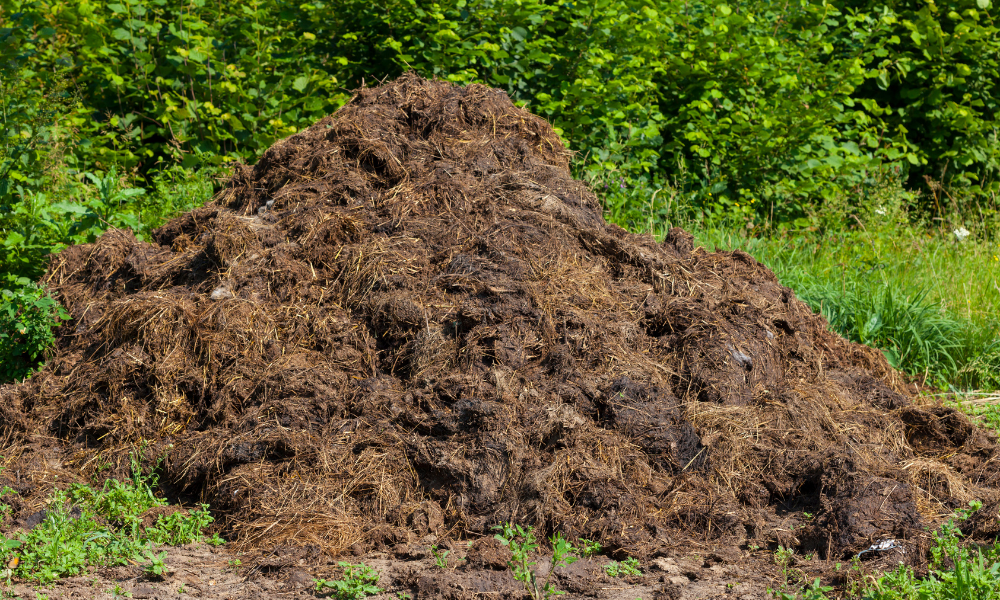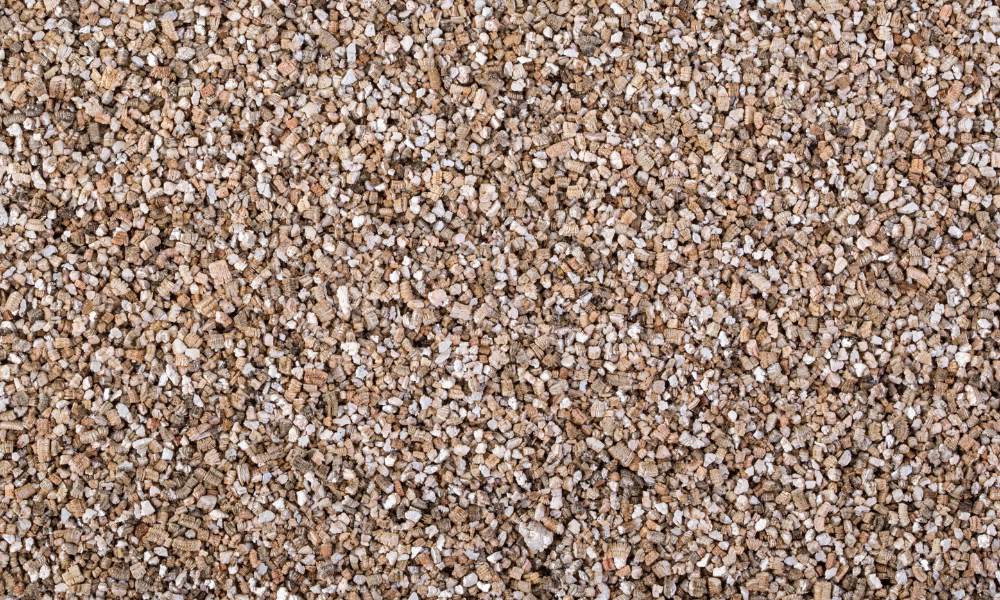
20 Benefits of Using Soil Amendment For Optimal Growth
Are you struggling to grow healthy plants in your garden or farm? Do you want to improve your soil's fertility and structure, but don't know where to start?
Healthy soil is essential for gardening and farming. Soil amendments increase physical, chemical, and biological qualities, making the soil more fruitful for plant growth. Choosing a soil amendment for your garden from compost, peat moss, lime to adjust soil ph or vermiculite can be confusing.
This article will help you choose the right soil amendment, adjust soil ph, and develop a more abundant garden. Moreover, we will discover the 20 benefits of soil amendments.
What is soil amendment?
Soil amendments are anything put into the soil to alter its chemical, physical, or biological composition for the better. You must add soil amendment if you want a balanced soil ph and better physical attributes, such as increased water retention, permeability, infiltration, drainage, aeration, and structure.
Organic and Inorganic Soil Amendments
Organic amendments
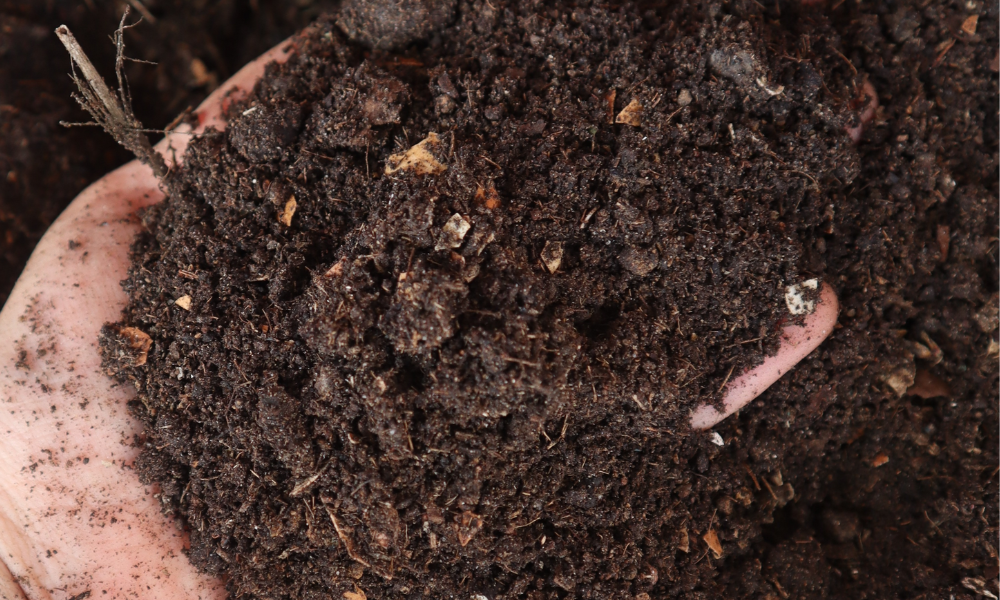
Organic soil amendments are organic materials added to soil to improve soil health, and water retention, increase nutrient availability, and promote healthy microbial activity. Organic amendments come from plant or animal sources and are generally free of synthetic chemicals or artificial substances.
Organic matter includes compost piles, animal manure, peat moss, and leaf mold. Plant materials, like grass clippings, are also considered the organic matter. Wood ash is another organic amendment; however, it has high pH and salt. Before using, you should conduct soil testing to check the soil pH and soil salinity.
Inorganic amendments
Inorganic amendments are not derived from living organisms like perlite, vermiculite, sand, and gravel. These amendments can help to improve soil drainage, aeration, and water-holding capacity. They can also help to balance soil pH and reduce soil compaction.
While inorganic supplements can offer more immediate advantages and certain nutrients, organic amendments can strengthen soil texture, boost water-holding capacity, and encourage soil microbial activity. For balanced benefits, it's frequently better to utilize a mix of organic and inorganic amendments.
Both organic and inorganic soil amendments can be beneficial for improving soil health and plant growth. It's important to consider factors such as soil type, plant needs, nutrient content, soil pH, sustainability, availability, and cost when selecting an appropriate soil amendments.
Benefits of Soil Amendments
Soil amendments are materials added to the soil to enhance its physical, chemical, or biological properties. These amendments can provide numerous benefits. Here are 20 benefits of using soil amendments:
Healthy soil:
Amendments like compost or organic matter can keep your soil healthy by enhancing aggregation and reducing compaction. This allows for better water infiltration and plant roots penetration.

Enhanced nutrient availability:
Organic fertilizers and mineral additives slowly deliver nutrients to plants, decreasing nutrient leaching.
Increased water-holding capacity:
Soil additives promote water retention, lowering runoff and improving plant water availability during dry periods.
Enhanced drainage:
In heavy clayey soils, sand or perlite can aid drainage and root growth.
Soil pH adjustment:
Amendments like lime or sulfur can be used to adjust soil pH, making it more suitable for specific plant species or correcting pH imbalances.
Increased soil aeration:
Vermiculite and peat moss promote soil aeration, allowing roots to obtain oxygen for plant respiration.
Reduced soil erosion:
By improving the structure of the soil and increasing water infiltration, amendments help erosion reduction.

Increased microbial activity:
Many soil amendments provide organic matter that serves as a food source for beneficial soil microorganisms, promoting their growth and activity. This can enhance nutrient cycling and improve overall soil health.
Carbon sequestration:
Organic amendments such as compost can increase soil organic carbon content, helping to sequester carbon dioxide from the atmosphere and mitigate climate change.
Weed suppression:
Amendments, such as straw or wood chips, can act as a mulch layer, suppressing weed growth and competition with desired plants.
Disease suppression:
Amendments, like certain types of compost or biocontrol agents, can help suppress soil-borne diseases by promoting beneficial microbial activity or introducing antagonistic organisms.
Improved plant growth:
By providing essential nutrients, improving the structure of the soil, and enhancing microbial activity. Soil enhancers can promote healthier growth, leading to increased yield and quality.
Increased nutrient retention:
Amendments can help improve the soil's ability to retain nutrients, reducing nutrient losses through leaching and making them more available for plant uptake.

Reduced nutrient runoff:
By improving soil's structure and water-holding capacity, amendments can minimize nutrient runoff, preventing pollution of water bodies and improving water quality.
Enhanced root development:
Amendments improve soil structure and aeration promote root growth and development, leading to stronger and more extensive root systems.
Reduced nutrient lock-up:
Some amendments can help reduce nutrient tie-up in the soil, particularly in soils with high clay or organic matter content, making nutrients more accessible to plants.
Improved soil tilth:
Tilth refers to the overall physical condition of the soil. Soil amendments can enhance soil tilth by improving its texture, friability, and workability.
Reduced soil compaction:
Amendments can alleviate soil compaction issues, allowing roots to penetrate more easily and enhancing overall plant health.
Increased drought tolerance:
Amendments that improve water-holding capacity and root development can enhance a plant's ability to withstand drought conditions, reducing water stress and improving survival rates.
Sustainable soil management:
By incorporating soil amendments, farmers and gardeners can adopt more sustainable soil management practices, reduce reliance on synthetic inputs, and promote long-term soil health and fertility.
Remember that the specific benefits of soil amendments can vary depending on the type of amendment used, soil characteristics, and specific plant requirements.
Common soil amendments for different soil types
Compost:
Compost is a common soil amendment that improves physical, chemical, and biological characteristics. Yard waste, food scraps, wood chips, and other organic matter are digested into rich, nutrient-dense compost. Compost boosts soil water-holding, aeration, and nutrient content.
Compost amends clay, sandy, and loamy soil. Compost can break up clay particles and enhance soil structure in heavy, dense clay soil. Compost can assist sandy soil in retaining water and nutrients, which is loose and free-draining. Compost can increase loamy soil's health and plant nutrients.
Overall, compost is a versatile soil amendment that can improve the health and productivity of many different soil types.
Manure:
Manure is another organic material that can be added to soil to improve its structure. It contains nutrients like nitrogen, phosphorus, and potassium that plants need to grow. It can also increase soil water-holding capacity and aeration.
Manure improves soil structure, fertility, and water-holding capacity. Plants need nitrogen, phosphorous, and potassium from it. Manure increases fertility and water-holding capacity in sandy soils lacking organic matter and nutrients. Manure loosens clay soils, improving drainage and root growth.
Before applying manure to soil, it should be composted or aged to remove salts and pathogens that can harm plants.
Peat Moss:
Peat moss is used to improve soil's structure and fertility. It amends sandy, clay, and loamy soils. Peat moss helps retain moisture and nutrients in sandy soils and breaks up heavy clayey soils to promote drainage.
Peat moss is a non-renewable resource that takes years to produce, therefore, its usage as a soil amendment should be balanced with environmental sustainability.
Vermiculite:
Vermiculite can remove hard or compacted soil and assist plant roots flourishing. It can also assist low-organic soils in retaining water and nutrients.
Vermiculite amends sandy, loamy, and clay soils. Creating a healthy soil ecology works best with compost or organic materials. Use vermiculite moderately and with other soil additives to avoid drainage issues and nutrient imbalances.
Perlite:
Perlite helps heavy clay soils drain and structure. Perlite breaks up clay soil, improving water infiltration and root penetration. Perlite increases water-holding capacity in sandy soils.
Container gardening raised beds, and soilless mixtures employ perlite as a soil addition. It is mixed with peat moss, vermiculite, or compost to form a well-balanced growing medium with nutrients, water retention, and drainage.
Gypsum:
Gypsum breaks up clay soil particles and improves drainage. It also aerates and compacts the soil. In high-sodium soils, it can substitute sodium ions with calcium ions, which are better for plant growth. Gypsum in excess can cause alkaline soil and nutritional imbalances. A soil testing lab or agronomist can help you identify the right amount of gypsum for your soil type and condition.
Lime to adjust soil pH
Lime raises the pH of acidic soil (below 7.0). It neutralizes acidic soil, raises pH, and decreases acidity. Lime works in sandy soil, loamy, and clay soils. The soil type and acidity level determines the amount and rate of lime application. Sandy soils require less lime than clay soils to raise soil pH.
Too much lime can harm soil and plant health. Most plants thrive when soil ph is a bit acidic. Before adding lime, you must conduct a soil test to determine the right amount. It is important to amend soil appropriately and follow recommended application guidelines to avoid any adverse effects on the soil or plants.
How to Use Soil Amendments
Applying soil amendments properly can be critical to their effectiveness. The method for applying soil amendments will depend on the type of amendment and the specific needs of your soil.
Here's how to amend soil:
- Prepare the soil: Removing any weeds or debris and breaking up soil particles is important before adding soil amendments.
- Choose the right amendment: Select an appropriate soil amendment for your soil type, plant needs, and nutrient deficiencies.
- Determine the amount needed: Read the instructions for the amendment or consult a gardening expert to determine the appropriate amount to use based on your garden soil and the specific needs of your garden plants.
- Apply the amendment: Spread the amendment evenly over the soil surface using a rake or shovel. You can also use a garden tiller to add soil amendments.
- Mix the amendment: Once the amendment is spread over the soil, mixing it thoroughly with the existing soil is important to ensure even distribution. Use a garden tiller or shovel to mix the amendment into the soil to a depth of at least 6 inches for better plant roots.
- Water the soil: After applying the amendments, water it thoroughly to help it settle and distribute evenly. Your soil amendments improve the soil properties and add nutrients to your soil.
Timing and frequency are also important considerations when applying soil amendments:
- Timing: The best time to apply soil amendments is typically in the fall or early spring, before planting. This allows the soil amendments to break down and become incorporated into the soil before planting season.
- Frequency: How often you apply soil amendments will depend on the specific amendment and the needs of your soil and plants. Some soil amendments may need to be applied every few months, while others may only need to be applied once a year.
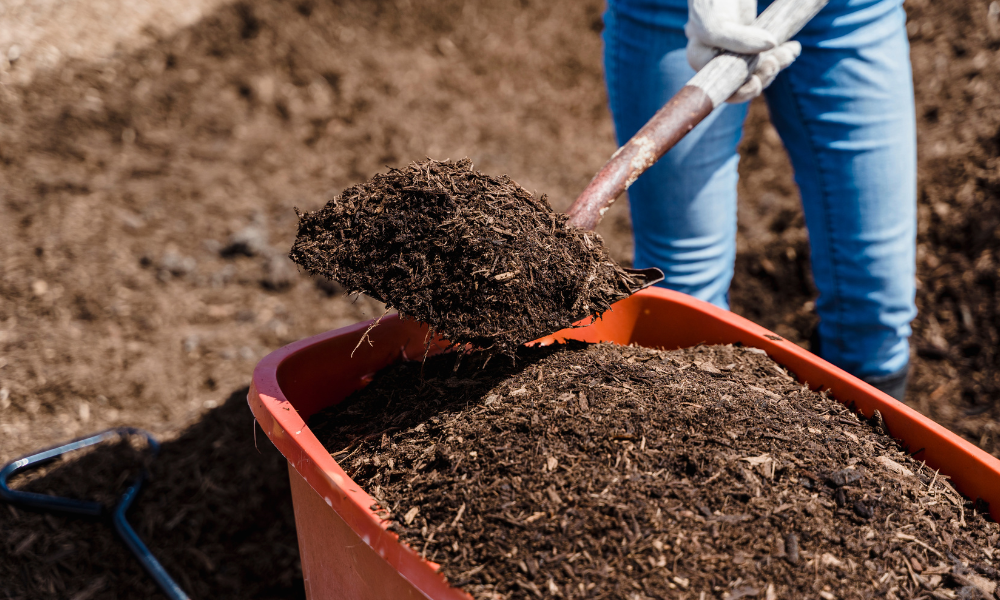
Timing and frequency are also important considerations to ensure the effectiveness of the amendments.
Hardy Garden offers one of the best soil amendments. Studies have shown that plants grown with Natures Perfect Soil Enhancer have higher levels of photosynthesis – drawing fewer pests, which means no need for chemical fertilizers. The mineral-rich soil amendments will increase your garden's strength and naturally provide necessary nutrients for your hardy plant’s growth, making them even hardier than before. Experience better results each time with Natures Perfect Soil Enhancer! It will give your plants top-quality nutrition to produce abundant fruits, vegetables, herbs, and flowers.
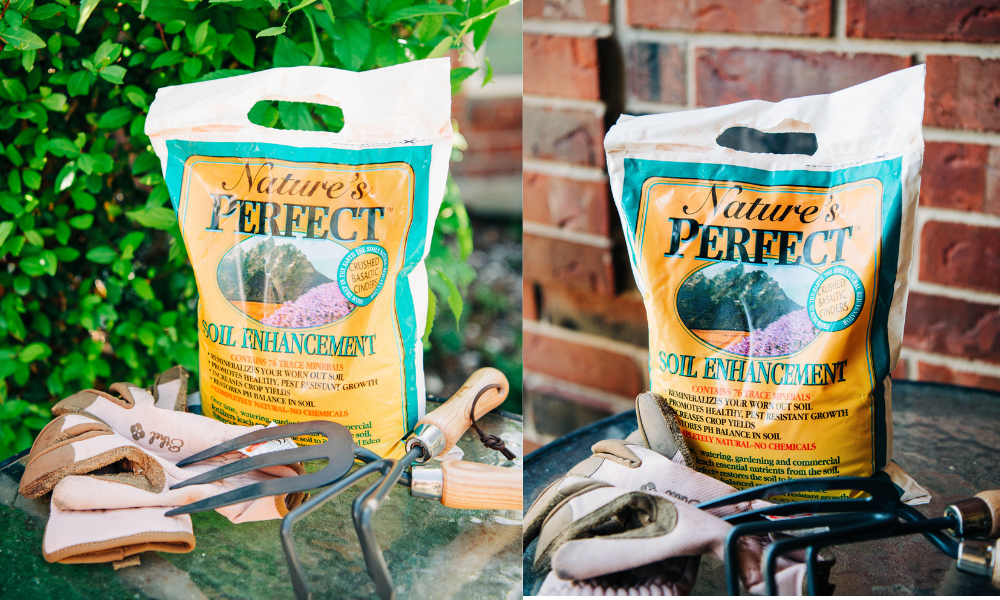
Conclusion
In conclusion, selecting the right soil amendment can be crucial in achieving a healthy and thriving garden or farm. By understanding the properties of different amendments, you can decide which amendment to use.
Organic amendments like compost, manure, and cover crops can improve the structure of the soil and fertility. While inorganic amendments like lime and gypsum can adjust soil pH and mineral content. Always soil test and consult a professional if you're unsure which amendment to use. Making the right choice for your garden soil will improve your crop yields and contribute to a healthier and more sustainable ecosystem.
We love to hear your thoughts; feel free to comment or share your experience or success in amending soil.
For more proven and tested gardening guides, please check our blog posts at hardygarden.com.

